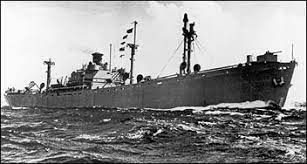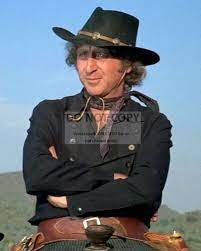Thursday, April 27, 2023
The Very Narrow World of an Oregonian; Maurice Goldfoot
Nadene Goldfoot
Charlie sitting, 6 and Meshke, my father, standing at 4, Jewish parents from Lithuania and their father just dying in an accident. They are 2nd generation immigrants; 1st born here.I say the very narrow world of my father, Moses/Morris/Maurice Goldfoot is because he was born on July1, 1908 at 277 Baker Street in South Portland and died in 1967. His father died from an accident involving his horse and wagon when he was 4 years old and his brother, Charlie, was 6. They sold newspapers on the street and were able to make change. My father, the smaller and lighter haired trailing behind his brother got the most business, he told us. Then they'd come home and give the change to their mother. Sometimes they managed to go to the movies. Their mother, my Bubby, was so short she was almost midget-size, and only spoke Yiddish, completely illiterate from Lithuania as both parents were.
As a child, he went to movies. Motion pictures debuted in Oregon in 1894 when a kinetoscope arrived in Portland. The innovative technology allowed boxing matches, vaudeville acts, and other popular entertainment to be shown in penny arcades and peepshows and, after 1906, on the nickelodeon.
Soon early films were being projected in theaters, first at Cordray’s Opera House in Portland. By 1897, local documentary films were being made, including Fishing on the Willamette (1897), The Portland Fire Department (1901), Decoration Day Parade (1902), Panoramic View of the Columbia (1904), and Opening Ceremonies of the Lewis & Clark Exposition Grounds (1905). One of the first feature films made in the state was The Fisherman's Bride, a 1908 silent film produced by Col. He picked up English when he started school.
He lived in a day consisting of the radio. Just before he died in 67, we had TV in the house by 1953. One of Portland's first radio station licenses was granted to The Portland Telegram and the first broadcast was heard on November 21, 1921 from the Telegram's offices in the Pittock Block. By his teens at 13, the year would have been 1921, so he may have had radio by then. "The Sheik of Araby" w. Harry B. Smith & Francis Wheeler m. Ted Snyder was popular.
I remember sitting around our radio in the living room in Portland's Ladd's Addition and listening to Lux Theater. Lux Radio Theatre, sometimes spelled Lux Radio Theater, a classic radio anthology series, was broadcast on the NBC Blue Network (1934–35) (owned by the National Broadcasting Company, later predecessor of American Broadcasting Company [ABC] in 1943–1945); CBS Radio network (Columbia Broadcasting System) (1935–54), and NBC Radio (1954–55).
Dad went in for all the sports; running, and loved baseball. He had to quit high school before he started his senior year to help support the family of his mother, brother and two sisters. He hated giving up baseball but could weigh the more needed skill that he had-working-against enjoying something.
Mel Blanc, both born in 1908, a month older
I presume my father listened much earlier, and also in his many trucks. He went to Failing Grade School in SW Portland with Mel Blank .Melvin Jerome Blanc (born Blank May 30, 1908 – July 10, 1989) was an American voice actor and radio personality whose career spanned over 60 years. During the Golden Age of Radio, he provided character voices and vocal sound effects for comedy radio programs, including those of Jack Benny, Abbott and Costello, Burns and Allen, The Great Gildersleeve, Judy Canova, and his own short-lived sitcom.
Blanc was born on May 30, 1908 in San Francisco, California, to Eva (née Katz), a Lithuanian Jewish immigrant, and Frederick Blank (born in New York to German Jewish parents), the younger of two children. He grew up in San Francisco's Western Addition neighborhood, and later in Portland, Oregon, where he attended Lincoln High School. He had an early fondness for voices and dialect, which he began practicing at the age of 10. He claimed that he changed the spelling of his name when he was 16, from Blank to Blanc, because a teacher told him that he would amount to nothing and be like his name, a "blank". He joined the Order of DeMolay as a young man, and was eventually inducted into its Hall of Fame. After graduating from high school in 1927, he divided his time between leading an orchestra, becoming the youngest conductor in the country at the age of 19; and performing shtick in vaudeville shows around Washington, Oregon and northern California.
Dad, fighting under the alias of Billy MeshkeThe Neighborhood House was right around the corner and that's where he started boxing, and went into it there professionally. He said that if the opposition looked really tough, he'd lay down rather than be beaten to a pulp. He had boxes of his gloves in our basement.
At about that time he tried marriage with a Rose Zusman, but that was over about as soon as it started, marrying June 3, 1928 when he was 19 and divorced August 12, 1929 at 20. He worked for the kosher butcher on 3rd and Lincoln where the Lincoln Theater resided a few doors away.
Then he met my tall mother, Mildred Elizabeth Robinson and married on April 29, 1932, bringing her home to his mother who they lived with for a few months. Mom learned how to make a lot of Jewish dishes that Bubby was known for. He was still with the kosher butcher when I was born in 1934. His minimum wage was $0.40 per hour. He got so he gave my mom $15 per week for groceries. That's what he paid me per week when I was 16 and could drive myself to work. I'd do his books after school.
1934 During the DepressionOut of 24 hours, he worked 8 here at the shipyards, then the rest in his own business, buying cattle, selling hides to the government, meat to people. He must have slept very little; never went to synagogue, unfortunately; trying to provide security for his family that he never had. Ann was born after her father had died. Here she's with Bubby and her daughter, Harriet. Bubby lived with Ann and her husband, Werner helping her with her 5 girls.
I loved it when he did get together with his sisters in Portland. They'd speak Yiddish and laugh and laugh. Elsie had one son, Donnie. I wonder if they mentioned how Bubby used to use the broom when they were under the bed to reach them. She was outnumbered 4:1. To provide for them, she had been a chicken plucker.
By 1941 we were at war, the 2nd World War. Dad was exempt from the draft as he was in a business of buying hides by then with the beginnings of his own wholesale Meat Co.; leather for army boots. So he, who never hammered a nail, became the manager at the ship yards of a group of workers. With his own business of Lincoln Wholesale Meats, he had butchers working for him; and my little cousin, Don, who finally was able to drive one of his trucks for him after school.
Silver Falls Meat Packing cattle truck
Dad never took a vacation but probably enjoyed the auction houses he drove to across Oregon in buying cattle more than he would any vacation. A Jewish guy wearing jeans and flannel shirts and cowboy boots must have been quite a sight, sort of a Mel Brooks in "Blazing Saddles,"
.Dad made it big, but no hat; but wore the boots. You walk around horse manure in cattle auctions, you know. He wound up on Columbia Blvd next door to Swift and Armour with his new business of Silver Falls Meat Packing Co. Though I had been keeping his books for him single-handed since age 15; when he moved in there, he hired professionals with machines. I lost my job! The best I did was enter college, and finally one day, while teaching at Lindbergh Grade School in Ontario, Oregon, got the school camera and made a study of cow to table...went through Silver Falls taking pictures and telling the story of meat.
6 hr 20 min (375.4 mi) via I-84 E driving....Portland to Ontario
When he came home from the road, being gone all week, he'd watch TV. Life was all work and no play; no reading great books or any book for that matter; only magazines.
Dad died on July 23, 1967, flown into Portland from Ontario to the Portland hospital. His illness happened right after Israel's 6 Day War (June 5th to June 10th 1967) He had become ill and died in about 3 weeks at age 59. He probably didn't even follow the war, nor know about any of them as they didn't make the Portland papers. What was in his life was the price of cattle, and what his children were doing. He was so lucky that our mom was the kind who liked her freedom but also felt and needed that security he provided. She and I had a good time together.
Dad died after being in the St. Vincent's hospital in Portland for four days. He was only 59 years old. He died at 11:00pm. He's buried in the Shaarie Torah Cemetery in Portland, Oregon. They spelled his mother's name as Hattie Germankoski on the death certificate.
He had hepatitis. He had had a blood transfusion after surgery. He had gone into shock. They used hypnosis to bring him out. The prostrate was operated on and was swelling. It was hyperplasic.
Since then, I've heard from business men who were helped and got their start in business from my father. That's a very Jewish mitzvah. He helped many.
He died in St. Vincent's Hospital in Portland and so did his father, most likely different buildings between the old hospital and the new one.
Labels: baseball, Billy Meshke, boxing, butcher, meat packer, Mel Blanc, new immigrants, Ontario, Oregon, Oregon shipyards, Portland






.jpg%20Maurice%20and%20Mildred.jpg)









